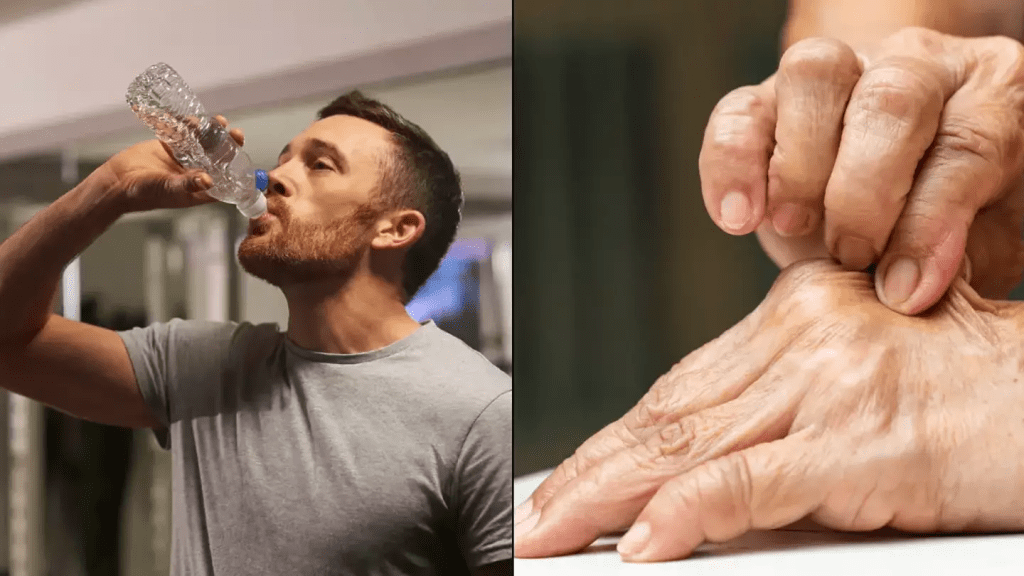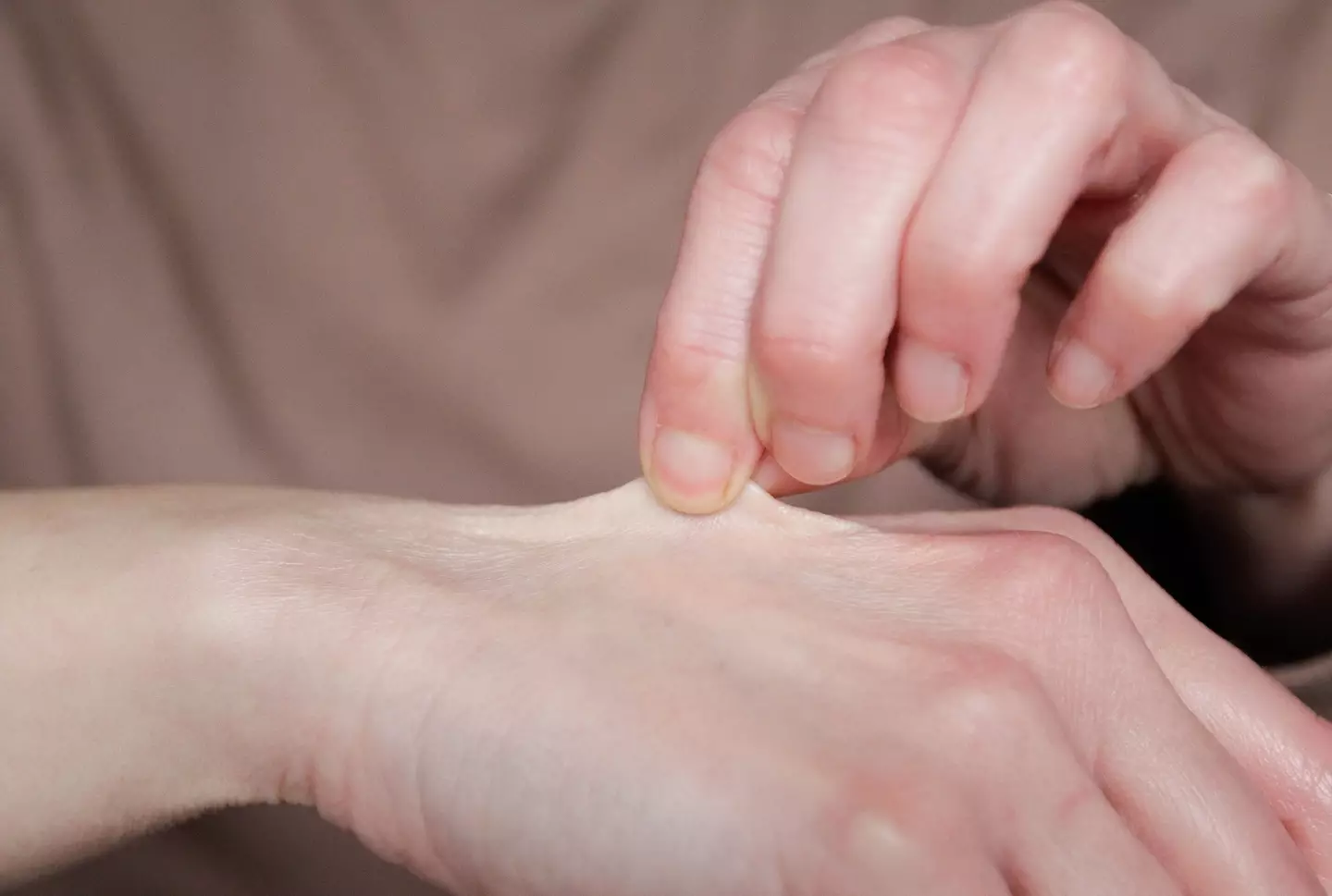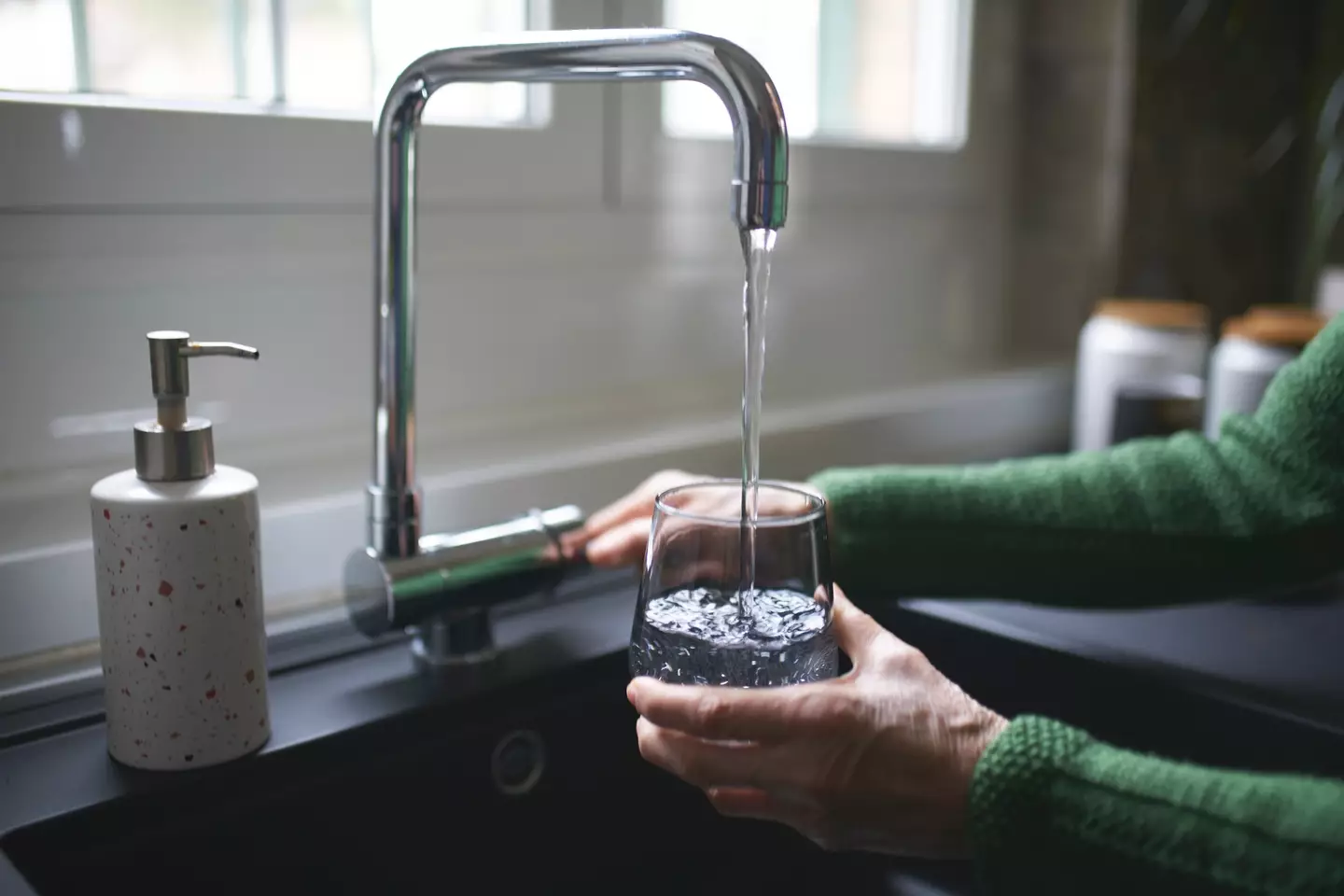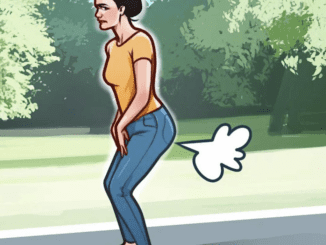Dehydration is a common issue that most people experience from time to time, but it can often go unnoticed—until you start feeling sluggish, thirsty, or get that dry mouth. While the usual advice is to drink six to eight glasses of water a day, how can you know for sure if you’re staying hydrated? Turns out, there’s a quick, easy test you can do right at home to check your hydration status, and it only takes seconds. Let’s dive into the details of this simple test, how it works, and why staying hydrated is more important than you might think.
Understanding Hydration: Why Does It Matter?

Hydration is more than just a buzzword; it’s essential for your overall health. Water is involved in almost every function in the body—from regulating body temperature to aiding digestion and keeping your skin healthy. The NHS suggests that the ideal fluid intake is around 1.2 liters (six to eight glasses) a day, and while water is the best choice, other beverages like tea, coffee, and milk also contribute to hydration.
But how do you know if you’re hitting that target? If you’re not drinking enough, you risk becoming dehydrated, which can have significant effects on your body, including fatigue, dizziness, and even more serious conditions like kidney problems. Fortunately, there’s a quick test that can tell you if you’re dehydrated, and it’s as simple as pinching your skin.
The Turgor Pinch Test: A Quick Self-Check for Dehydration
One of the easiest ways to check for dehydration is by performing a simple skin test known as the Turgor Pinch Test. This test is often used by healthcare professionals to assess dehydration in patients.
Here’s how it works:
- Pinch the skin: Gently pinch the skin on the back of your hand or forearm.
- Observe how it reacts: Release the skin and see how quickly it returns to its normal position.
If you’re hydrated, your skin should snap back into place almost immediately. However, if you’re dehydrated, the skin will remain “tented” or stay up for a few seconds before returning to its usual position. This is because when your body is lacking hydration, your skin loses some of its elasticity, and the extra cellular space contracts.
Dr. Myro Figura, a health expert, explains that when you’re dehydrated, your skin’s elasticity is reduced, causing it to take longer to return to its original position after being pinched. The longer it stays “pinched,” the more likely you are to be dehydrated.
Important note: Dr. Figura points out that this test is typically done on the back of your hand, not on your finger, for more accurate results.

The simple Tugor pinch test can tell you if you’re dehydrated within seconds (Getty Stock Photo)
What to Do if the Pinch Test Indicates Dehydration
If you notice that your skin stays pinched for a while, don’t panic—this is simply a sign that your body needs more fluids. The solution is straightforward: hydrate!
Grab your water bottle, drink some water, and aim to stay hydrated throughout the day. Additionally, if you’re feeling other signs of dehydration (like dry mouth or dark urine), it’s important to keep sipping water consistently.
But hydration isn’t just about drinking water. Certain foods can also help you stay hydrated. Water-rich fruits like watermelon, cucumbers, and oranges can contribute to your fluid intake.
Signs of Dehydration: How to Tell if You Need More Fluids
While the Turgor Pinch Test is a quick and effective method, there are other signs that may indicate you’re not drinking enough water. Keep an eye out for these common symptoms of dehydration:
1. Thirst
It’s the most obvious sign of dehydration. If you’re thirsty, your body is telling you it needs fluids.
2. Dark Yellow Urine
Your urine should be pale yellow. If it’s darker than that, it could be a sign that you’re not drinking enough fluids.

Was that five or six glasses today? (Getty Stock Photo)
3. Less Frequent Urination
If you’re not peeing as much as usual, it’s a sign that your body is holding onto fluids.
4. Dizziness or Lightheadedness
Feeling lightheaded, dizzy, or faint can be caused by dehydration, especially when you stand up quickly.
5. Fatigue
Dehydration can lead to tiredness and low energy. Without enough fluids, your body can’t perform at its best.
6. Dry Mouth, Lips, or Tongue
A dry mouth is one of the first signs that your body needs hydration.
7. Sunken Eyes
Sunken eyes or dark circles around the eyes can also be a sign of dehydration.
These symptoms are often subtle at first, but they can get worse if you don’t take action to hydrate your body. In severe cases, dehydration can lead to more serious health issues, including kidney stones, urinary tract infections, and kidney failure. If you experience any of these symptoms for an extended period, it’s important to seek medical advice.
Why Drinking Enough Water is Crucial for Your Health

Water is essential for many bodily functions. It helps maintain the balance of bodily fluids, regulates body temperature, supports digestion, and keeps your joints lubricated. Staying hydrated also promotes healthy skin and helps with weight management, as drinking water can reduce appetite and improve metabolic function.
In addition to drinking enough fluids, you should be mindful of other factors that can lead to dehydration. If you’re pregnant, exercising, or exposed to hot weather, you’ll need to drink even more water to replenish the fluids lost through sweat. Illnesses that cause fever, vomiting, or diarrhea also increase your risk of dehydration, and you may need to adjust your fluid intake accordingly.
Conclusion: How to Stay Hydrated and Healthy
Being hydrated is more than just a matter of drinking enough water; it’s about maintaining balance in your body. The Turgor Pinch Test is a simple and effective way to gauge if you’re dehydrated, but don’t rely on it alone. Pay attention to other signs of dehydration and make sure you’re drinking enough fluids throughout the day.
If you’re not sure whether you’re getting enough fluids, try to observe your urine color, listen to your body, and make adjustments as needed. Staying hydrated isn’t just good for your skin or energy levels—it’s crucial for your overall health. So, next time you reach for that glass of water, remember that it’s not just a habit—it’s a way to keep your body functioning at its best!


